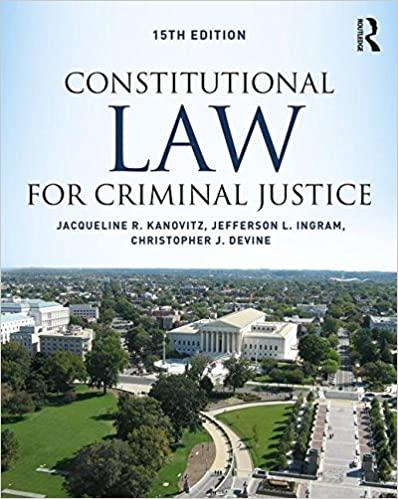Question
QUESTION - Explain what happened in this casejQuery22409468011522166544_1604856177809? Alexander of Polton v. Robert of Norton - SEE BELOW!!! ALEXANDER OF POLTON v. ROBERT OF NORTON
QUESTION - Explain what happened in this casejQuery22409468011522166544_1604856177809?
Alexander of Polton v. Robert of Norton - SEE BELOW!!!
ALEXANDER OF POLTON v. ROBERT OF NORTON
I
Alexander of Polton, who is here, shows you this: that Robert of Norton, who is there, wrongfully refuses and fails to perform the customs and rightful services which he owes him for the tenement which he holds of him and in Killamarsh, namely for one messuage and three virgates of arable [land] with appurtenances, ... by homage and scutage of five shillings when scutage runs at forty shillings and for one pound of pepper a year. Wrongfully because this is his right and his inheritance and of which he was himself seised in his demesne as of fee and right of the rent and of the pound of pepper and of the scutage and of the homage as of fee and right in time of peace during the reign of the present king,[1] whom God preserve, receiving profits as through arrears of rents and scutage and other kinds of issues of the rent and scutage amounting to half a mark and more as of fee and right until four years ago when he withheld them wrongfully and to Alexander's damages of fifty pounds. If he wishes to deny this, he has good suit to support it.
Robert of Norton, who is here, denies the wrong and the force and the right of Alexander and his damages of fifty pounds and each penny and will deny it here and when he ought to do so and asks for judgment of this writ as he brings a writ specifying 'as in homages, arrears and other things' and makes a count talking of his own seisin, but he cannot say that he has received the homage and that it is now in arrears. So we ask or judgment.
John de Lisle.[2] Sir, we tell you that homage is one of the incidents of scutage and the reason for this is that scutage is foreign service and foreign service entitles to wardship and no child below age ought properly be in wardship until his lord has received his homage. So it is my advice that one can as well show seisin of the lesser service, that is homage, as of the greater, that is scutage.
SIR JOHN OF METTINGHAM, J. What you say is not correct. Homage is the greater service. Why? Because homage may create the obligation of warranty but scutage does not. Moreover, homage is so solemn a service that is can only be done once during the lifetime of the persons making and receiving it; and scutage can be given every other year. So we tell you to say something else to say something else to support your writ or we tell you something else.
John de Lisle. Sir, we do not know anything else to say.
SIR WILLIAM OF SAHAM, J. You could get a writ in chancery specifying 'as in arrears and other things' without specifying homage. So this court adjudges that you take nothing by this writ but are to be amerced for your false complaint.
II
writ of customs and services
William of H. brought a writ of customs and services against Adam Culvert [Adam of Killingworth] and said in his writ that he should perform to him the customs which he owes for his free tenement etc. 'as in homages, rents, arrears etc.' Then he counted as follows: that he wrongfully did not perform to him the customs and rightful services etc. Wrongfully because whereas he holds of him etc. for homage and for royal service, that is to say whenever, etc., and for five shillings forrent etc., of which he himself was seised.
Adam answered that he is himself seised of his homage and since homage cannot be in arrears once someone has been seised and he claims a homage of which he himself is seised we ask for judgment of the writ. And, even if he was not seised, the writ would still be bad because he cannot count of the seisin of another than his own because of the word 'arrears' that is in his writ.
J. de Lisle. Sir, where there is scutage there is also homage but not vice versa, so as we are seised of scutage which is the principal we ask for judgment whether we cannot recover the homage which is accessory by this writ.
SAHAM, J. I tell you that homage is higher than is scutage because when one is entitled to wardship one ought to take homage before one gets the wardship which depends on the scutage and thus it follows that homage is principal and not an accessory and so the writ is to be brought on the seisin of an ancestor. But this writ is to be brought on your own seisin.
Lisle was disavowed and then counted again without mentioning the homage.
Adam asked for judgment as he claims homage by the writ and not by mouth.
And the writ was quashed.
Step by Step Solution
There are 3 Steps involved in it
Step: 1

Get Instant Access to Expert-Tailored Solutions
See step-by-step solutions with expert insights and AI powered tools for academic success
Step: 2

Step: 3

Ace Your Homework with AI
Get the answers you need in no time with our AI-driven, step-by-step assistance
Get Started


